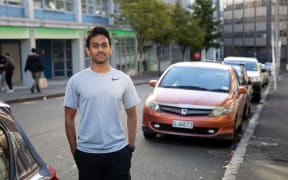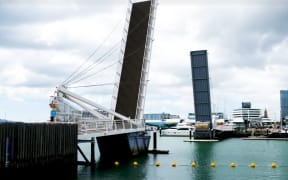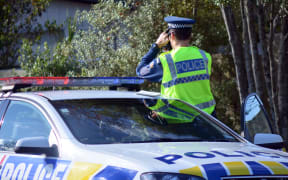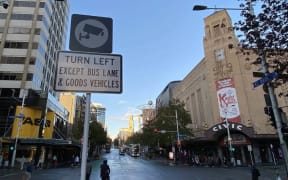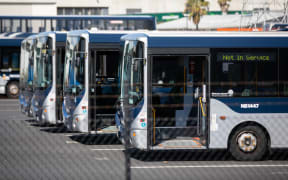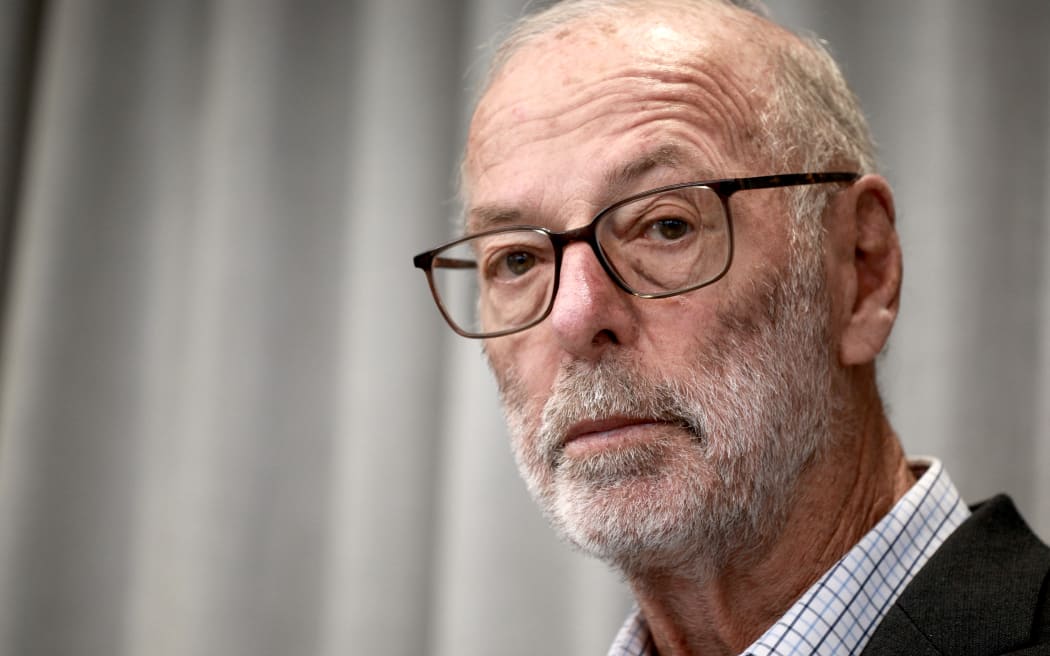
Auckland Mayor Wayne Brown makes an announcement on the future of the Ports of Auckland on 7 May, 2024. Photo: RNZ / Marika Khabazi
The head of Auckland Transport (AT) is a "little bit surprised" by the mayor's claim he was blindsided by planned changes to parking fees in the CBD, since he relayed the news himself a couple of weeks ago.
From 1 July, there will no longer be free curbside parking in the central city outside peak hours, overnight and at weekends. Instead, vehicle owners will need to stump up between $2 and $3 an hour.
"Auckland Transport needs to find $73 million worth of savings in the year coming - that includes cost reductions, but it also includes looking at revenue sources, and this is one of those," AT chief executive Dean Kimpton told Morning Report on Monday.
"If we don't find those savings, the ratepayers - including the business ratepayers inside the central city area - could face up to 3 percent increase on rates."
Mayor Wayne Brown said at the weekend he had no idea the changes were coming. Kimpton said he "personally rang and talked to the mayor about it on the 29th of April", and the plan had been "out there" since 23 April as part of AT's parking strategy.
Heart of the City chief executive Viv Beck told Morning Report it was "out of the blue", "out of step with [AT's] own approach around parking" and there had been "no discussion with us certainly, or consideration of the impact".
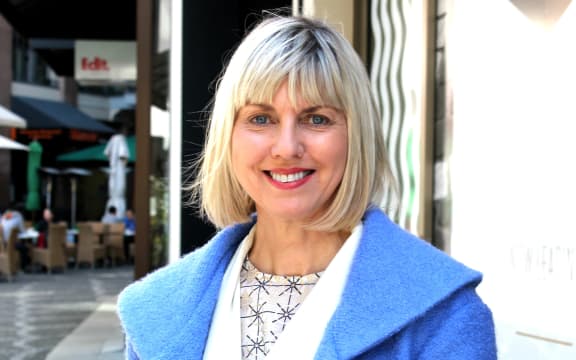
Viv Beck. Photo: Supplied / HOTC
"We expected to be involved in those discussions, but this has literally just been thrown at people just like that."
Kimpton said he was "a little bit surprised" by Beck's response, because it had been "an open discussion all the way through the Long-Term Plan process".
Beck said AT had not supplied Heart of the City with "any information about demand at night".
"We've got the situation in the central city where we've had nearly a decade of major construction. We've had Covid, we've got the cost of living. The impacts are huge, and we've got a lot of people struggling through those circumstances.
"The night-time economy is really important. It's about a third of our spend. And this affects, you know, hospo workers, cleaners, people that are looking for safe, affordable parking at night. And the AT carparks are not open 24/7.
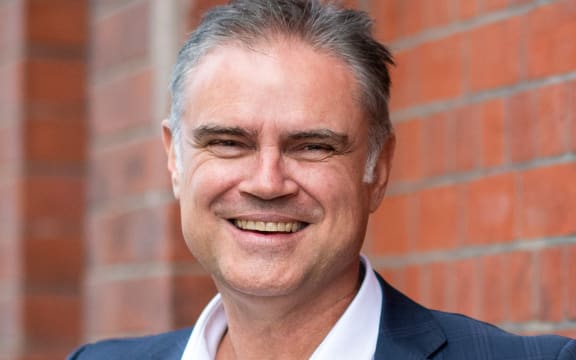
Dean Kimpton. Photo: Supplied / Mark Tantrum
"We didn't mind having a conversation, in fact we expected to be having a conversation around the better optimisation of curbside, but to do it in this way is really flawed. There are different views about parking, but the reality is they still have to do things properly in our view."
Kimpton said the parking price hikes were not happening in isolation, saying AT was working on a permit system for people who work odd hours in the city, capping the cost of public transport for regular users and "encouraging employers through our fair share scheme to subsidise the cost of their employees coming into the city, or anywhere across Auckland, on public transport".
"Money that we do raise through this - and we expect to raise about just under a million dollars - qe will reinvest in the great public transport into the city and safety, so that people feel safe and it's available.
"So this is not just an increase without context. There's a lot of context, and Auckland Council does support it."
Meanwhile, the hospitality sector said the new overnight parking fees would be an unfair burden on staff whose shifts finished late and started early.
Hospitality New Zealand's chief executive Steve Armitage told Midday Report's Charlotte Cook that public transport was too unreliable at those times for hospitality staff.
"We have concerns about people who work on the periphery of the city who work odd hours and their need to continue to use private transport to get into work."
The new parking fees were an additional cost that would be "difficult for some people to swallow" and some central-city staff may reconsider their work location as a result.
Asked whether the bars and restaurants might subsidise the cost of parking for their staff, he said economic pressures were "biting".
"Although there may be some that would look to go the extra mile for their staff, I think for others it's probably something that is a bridge too far."
The night-time parking fees might also discourage potential patrons from coming into the CBD, he said.
"The current economic environment means people are thinking very hard about every dollar they're spending."
The Auckland hospitality sector was already working with the council and other stakeholders on a strategy for the night-time economy, he said.
"[We're] trying to get it back to where it was pre-Covid, trying to create an incentive for people to come back in, so [the parking fee policy] has just come out of left field, and is a little bit ironic given the work we're doing with other parts of council".
